In the second installment of our medieval travelers series, we follow Marco Polo into the deserts of Iran and learn about the hazards of the road, including a lethal wind.
Today’s Text
-
Polo, Marco.
The Book of Ser Marco Polo, the Venetian, Concerning the Kingdoms and Marvels of the East. Translated and edited by Henry Yule, 2nd rev. ed., Vol. I, John Murray, 1875.
Google Books.
Footnote Background Music: from Mussorgsky’s Pictures at an Exhibition (piano concerto version composed in 1874, at the same time Yule was producing his translation of Polo), as performed by the Skidmore College Orchestra.
Image: Image of the Salt Desert in Iran, by Jeanne Menjoulet (https://www.flickr.com/photos/jmenj/9261280308/) [CC By 2.0]

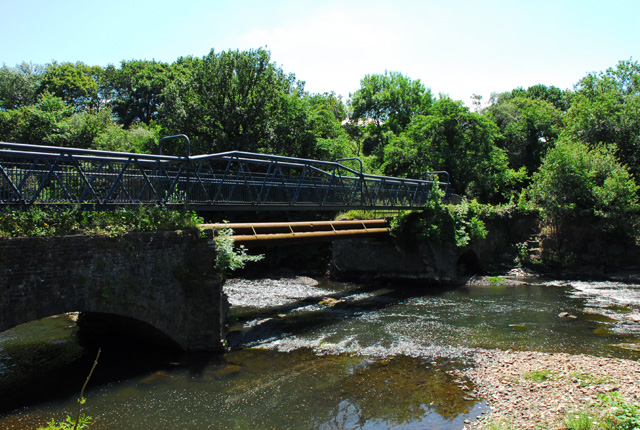 We kick off a miniseries of texts from medieval travelers by continuing with Gerald of Wales as he sets out to tour Wales with Archbishop Baldwin, collecting stories from the region and getting involved in a few escapades of his own.
We kick off a miniseries of texts from medieval travelers by continuing with Gerald of Wales as he sets out to tour Wales with Archbishop Baldwin, collecting stories from the region and getting involved in a few escapades of his own.
Today’s Texts:
Selected References:
-
Bartlett, Robert. Gerald of Wales: 1146-1223. Clarendon Press, 1982.
-
Coulter, Cornelia C., and F.P. Magoun, Jr. “Giraldus Cambrensis on Indo-Germanic Philology.” Speculum, vol. 1, no. 1, Jan. 1926, pp. 104-109. JSTOR, doi:10.2307/2847347.
-
Sargent, Amelia Lynn Borrego. Visions and Revisions: Gerald of Wales, Authorship, and the Construction of Political, Religious, and Legal Geographies in Twelfth and Thirteenth Century Britain. Disseration, University of California, Berkeley, 2011.
-
Sims-Williams, Patrick. Irish Influence on Medieval Welsh Literature. Oxford UP, 2011.
Image: Footbridge over the River Neath by Cedwyn Davies (used under CC BY-SA 2.0 license).
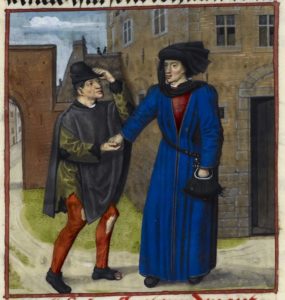 We’re back for some late summer episodes with a look at how medieval authors cozied up to potential patrons, with a specific look at Gerald of Wales. Coincidentally, we also announce our Patreon campaign! You can support us at www.patreon.com/mdtpodcast/ and get an audiobook of Jordanus’s Wonders of the East.
We’re back for some late summer episodes with a look at how medieval authors cozied up to potential patrons, with a specific look at Gerald of Wales. Coincidentally, we also announce our Patreon campaign! You can support us at www.patreon.com/mdtpodcast/ and get an audiobook of Jordanus’s Wonders of the East.
Today’s Texts:
Selected References:
- Gilbert, Creighton E. “What Did the Renaissance Patron Buy?” Renaissance Quarterly, vol. 51, no. 2, Summer 1998, pp. 392-450. JSTOR, www.jstor.org/stable/2901572.
- Haskins, Charles H. “Henry II as a Patron of Literature.” Essays in Medieval History Presented to Thomas Frederick Trout, edited by A.G. Little and F.M. Powicke, Books for Libraries Press, 1925.
- Holzknecht, Karl Julius. Literary Patronage in the Middle Ages. Collegiate Press, 1923. Archive.org, https://archive.org/details/literarypatronag00holzuoft.
- Safner, Ryan. “Do Patronize Me: The Comparative Political Economy of Arts Patronage, Copyright, and Crowdfunding.” 10 Nov. 2015.
Image: Detail from British Library Harley MS 4425, f. 47v.
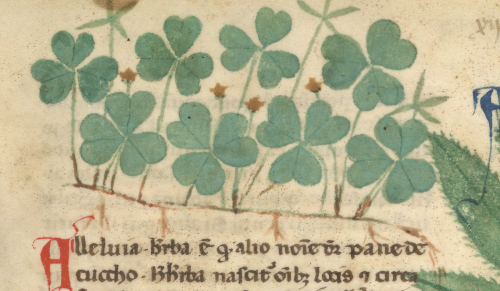
It’s a special Saint Patrick’s Day episode, in which we hear about the contests between the saint and some Irish magicians, as related in Muirchu’s 7th-century Life of St. Patrick.
Today’s Texts:
-
Muirchu. Life of St. Patrick. St. Patrick: His Writings and Life, edited and translated by Newport J.D. White, Macmillan, 1920.
References:
- Conway, Moneure D. “The Saint Patrick Myth.” The North American Review, vol. 137, no. 323, Oct. 1883, pp. 356-371. JSTOR.
- Hood, A.B.E., editor and translator. St. Patrick: His Writings and Muirchu’s Life. Phillimore, 1978.
Image: Detail from British Library Egerton MS 747, f. 12r.
Fox sound effect from http://www.freesfx.co.uk.
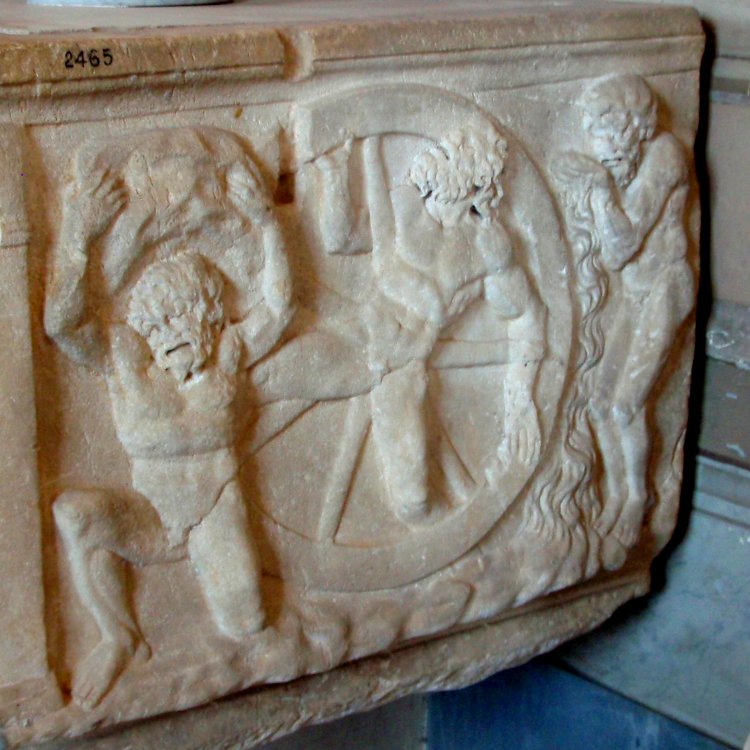
This episode we continue with Walter Map’s De nugis curialium and learn that politics really is hell.
Today’s Texts:
-
Map, Walter. De Nugis Curialium. Translated by Montague R. James, historical notes by John Edward Lloyd, edited by E. Sidney Hartland, Cymmrodorion Record Series, no. 9, Honourable Society of Cymmrodorion, 1923.
- Homer. The Odyssey. Translated by A.T. Murray, Harvard University Press, 1919. [at Perseus]
- Anglo-Saxon Riddles of the Exeter Book, translated by Paull Franklin Baum (1963). Available at: https://en.wikisource.org/wiki/Anglo-Saxon_Riddles_of_the_Exeter_Book/59
References:
- Bartlett, Robert. England Under the Norman and Angevin Kings: 1075-1225. Clarendon Press, 2000.
- Brooke, C.N.L. Introduction. De Nugis Curialium: Courtier’s Trifles, by Walter Map, edited and translated by M.R. James, revised by C.N.L. Brooke and R.A.B. Mynors, Clarendon Press, 1983.
- Turner, Ralph V. “The Reputation of Royal Judges under the Angevin Kings.” Albion, vol. 11, no. 4, Winter 1979, pp. 301-316. JSTOR, www.jstor.org/stable/4048542.
- Echard, Siân. “Map’s Metafiction: Author, Narrator and Reader in De nugis curialium.” Exemplaria, vol. 8, no. 2, 1996, pp. 287-314.
Image: Sarcophagus in Vatican Museums featuring images of Sisyphus, Ixion, and Tantalus. Photo by Dan Diffendale (used under Creative Commons BY-NC-SA 2.0)
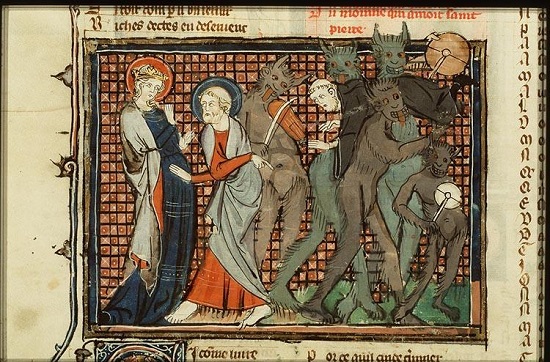
This episode we dive into Walter Map’s De nugis curialium for a satirical lesson in administrative chaos, choler, and corruption, and also how generally terrible we are.
Today’s Texts:
-
Map, Walter. De Nugis Curialium. Translated by Montague R. James, historical notes by John Edward Lloyd, edited by E. Sidney Hartland, Cymmrodorion Record Series, no. 9, Honourable Society of Cymmrodorion, 1923.
References:
- Brooke, C.N.L. Introduction. De Nugis Curialium: Courtier’s Trifles, by Walter Map, edited and translated by M.R. James, revised by C.N.L. Brooke and R.A.B. Mynors, Clarendon Press, 1983.
-
Horace. De Arte Poetica. Horace: Satires, Epistles and Ars Poetica, translated by H. Rushton Fairclough, Loeb Classical Library, Harvard UP, 1929.
Image: Detail of demons carrying off a monk from The Hague, KB, 71 A 24, fol. 27v









Recent Comments